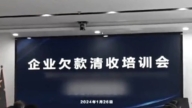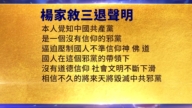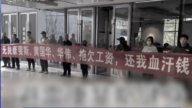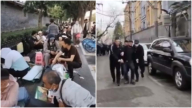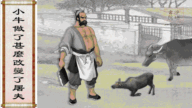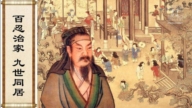【新唐人2011年11月15日訊】大陸新聞出版總署署長最近公開表示,國內很多文化藝術作品創造力不夠,9成作品屬於模仿和複製﹔中共當局將通過設立文化創意扶持體制和基金來提高創新能力。文藝人士則認為,大陸的文化管制非常嚴厲,這種管制不取消,提高基金不會起到任何好的作用。
11月12號,在北京召開的“2011中國版權年會”上,大陸新聞出版總署署長、國家版權局局長柳斌傑公開表示,目前國內很多文藝作品創造力不夠,90%的作品是模仿和複製的。他舉例說,大陸現在年產文藝作品達到4300多部,但是公眾知道的、觀看的並不多,原因就是創新能力不強﹔很多人喜歡看外國大片,因為對方的創意好、傳播能力比較強。
他表示,將從中央到地方提供資金來扶持,福利彩票的相當比例也將傾向文化領域。
對此,大陸文化評論人葉匡政對《新唐人》表示,在大陸文學界,政府現在每年就已經投入大量的錢來扶持文學創作,但這些基金大多被體制內的作協官員佔用,真正有創造力的、體制外的作家很難獲得政府資助。
大陸文化評論人葉匡政:“這些活力,其實大多數存在民間、或者體制外的作家中。因為稍微有點個性或者骨氣的作家,都不可能唯作協或者目前的政黨——中共的態度,唯馬首是瞻的,這種可能性是不大的。所以,它基金髮放的越多,只不過給了這些所謂的體制內的文學官員,來製造垃圾文學。”
前《中國民營》雜誌記者、專欄作家劉逸明也認為,這種資金扶持的做法不會起到任何好的效果,只會滋生腐敗。
專欄作家劉逸明:“因為中國的文化藝術事業被政治壓制的太厲害,所以,很多人沒有創造力,不是因為他們不想有創造力,而是因為這個制度壓制。”
《旺報》的一則讀者投書談到,在大陸文藝界,模仿和複製很普遍,到處都是山寨版。比如,前幾年很火的《超級女生》是從美國抄來的,這兩年很火的《中國達人秀》是從英國抄來的。電視螢幕上,模仿國外的節目、電影、動漫等佔了大半。投書分析說,中國人從小就被教育要聽話,死記硬背標準答案,很難有創造力。
大陸作家荊楚則指出,與西方國家的文化自由相反,大陸在中共的專制體制下,全國被要求與黨保持一致,只允許有一個思想,根本不可能有甚麼創造力。
大陸作家荊楚:“比如,信仰基督教的、信仰真善忍的法輪功,法輪功信仰真善忍,就是對它階級鬥爭這些東西的一個衝擊,所以就要想方設法打壓。在一個社會裏面,不允許不同的思想存在,這樣的社會,不可能有思想上的活力,也不可能有藝術上的創造力。”
荊楚認為,實際上要提高文藝作品的創新能力很簡單,當局只要取消思想文化管制、出版管制、輿論管制、網絡管制就可以了。他強調在中共的專制體制下,不可能達到真正的文化繁榮。
實際上伴隨著“中國製造” 和山寨熱,中國的各行各業都面臨創新能力低下的嚴重問題。
今年1月份,湯姆路透(Thomson Reuters)知識產權解決方案事業部公布了《2010年創新報告:12個重要技術領域及其創新情況》,報告顯示:日本的專利總數是中國的100倍以上,美國是中國的4.3倍,南韓是中國的1.8倍。中國的創新能力與這些國家差距很大。
新唐人記者朱智善、李謙、李若琳採訪報導。
China Lacking Creativity?
China Press and Publication Administration Director announced,
the domestic cultural and artistic works creativity is low, with 90% of them being imitations and reproductions.
The Chinese Communist Party (CCP) authorities will establish
a creative support system, and funds to improve innovations.
Literary people comment that the control over culture
in mainland China is very strong.
If this control is not abolished it will not produce
a good effect to just increase funds.
On November 12, the “2011 China Copyright Annual Meeting"
was held in Beijing.
At the meeting, Liu Binjie, Director of Press and Publication
Administration, and Director of National Copyright Bureau,
said that at present the creativity component of many
domestic cultural and artistic works is very low.
Liu Binjie pointed out that 90% of near 4300 works submitted
annually in China, are imitations or reproductions.
However, those known and used by people are not many
for their innovation is not strong.
For example, a lot of people like to watch foreign movies,
because their creativity and promotion is good.
He said that funding will be provided from the central
to the local governments.
A substantial proportion of the welfare lottery
will be inclined to the field of culture.
Cultural critic Ye Kangzheng, told NTDTV that CCP
spends a lot of money supporting the literature field.
However, most of these funds are held by officials
of Writers Association within the system.
It』s difficult for the true creative writers within
and outside the system to obtain government funding.
Ye Kuangzheng: “This vitality, in fact, mostly exists
in the folk people and the writers outside the system.
Good writers with unique style or backbones are unlikely
to just follow the Writers Association, or the attitude of CCP.
If there are more funds, they are just for the so-called
『literary officials』 to produce more garbage literature.”
Former correspondent of magazine China Private, Liu Yiming
believes this method of funding will breed more corruption.
Liu Yiming: “Chinese cultural and artistic fields
are strongly repressed by politics.
So many people have no creativity. It』s not because they don』t
want to have creativity, the policy is suppressing them."
A letter from a reader of Wang Newspaper says it』s common
to imitate and replicate. The derivatives are everywhere.
For example, “Super Girls" which was very popular
a few years ago, was copied from America.
“Chinese People Show Up" which has been popular
for these last two years, is copied from the UK.
The programs on TV which imitate foreign shows, movies,
animation and so on, account for more than half.
The letter analyzes that Chinese people are educated to be
obedient from childhood, with rote for standard answers. It』s hard to have creativity.
Writer Jin Chu points out that opposite to the culture freedom
in the West, people in China must be consistent with CCP.
Only one thought is allowed,
it』s not possible to have any creativity at all.
Jin Chu: “For example, Christian faith, faith in Truthfulness,
Kindness and Tolerance of Falun Gong, have an impact to its class struggle.
CCP resorts to every method to suppress. In a society not
allowing the existence of different ideas, it』s not possible for ideological vitality.
Neither is it possible to have artistic creativity.”
Jin Chu believes it』s very simple to improve
the creative capability of cultural and artistic works.
Authorities need to abolish their control over culture,
publication, media and networks.
He stressed that under the autocratic system of CCP,
it』s not possible to achieve a real cultural prosperity.
Along with “Made in China," various industries in China
are facing the serious problems of low innovation capability.
In January, Reuters』 Intellectual Property Solutions Group
released the “2010 Innovation Report: 12 Critical Technologies & Innovations."
The report shows that Japan』s total number of patents
is 100 times higher than China』s.
America』s is 4.3 times, and South Korea』s is 1.8 times
higher than China』s.
These numbers show that the innovation ability of China
is far lower than that of those countries.
NTD reporters Zhu Zhishan, Li Qian and Li Ruilin


